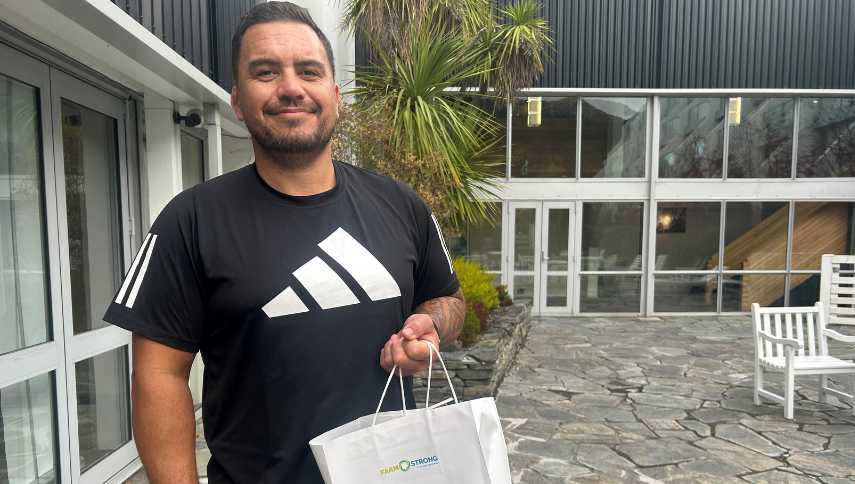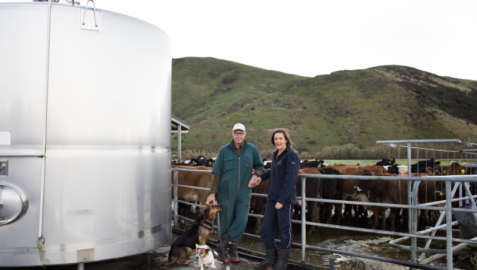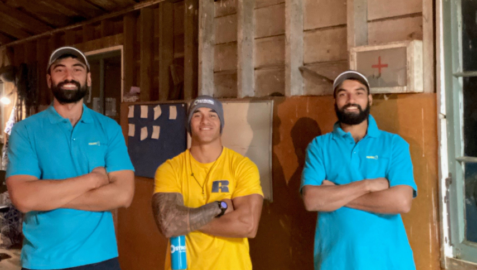
A Long Winter
Module Overview
It’s a challenging time to be working in the shearing industry. The theme of this year’s annual conference was Building Resilience. Farmstrong caught up with shearing contractor Shane Ratima about the pressures contractors face.
How long have you been in business?
I’ve been a shearing contractor for 18 years. I have to say over that time, I’ve had mostly really positive experiences. We’ve come a long way as a business, but in recent times there’s been challenges too.
What’s happening at industry level?
A combination of low wool prices and rising farm costs means shearers are the ‘meat in the sandwich’. The farmers we deal with are understandably frustrated at paying to harvest wool for little or no return. This means some are no longer investing in the maintenance and upkeep of sheds and equipment or cutting back on numbers employed. It’s a challenging environment for everyone.
Do you find that stressful?
Yes, but I’ve learnt to accept that a lot of what’s happening in the industry is out of my control. The best that we can do as contractors is mentally prepare ourselves for that. I try to not take things personally or get overwhelmed by it all. If you just worried about the state of the industry all day, it would send you into a head spin.
So, how would you describe the mindset required to deal with the situation?
I work on the philosophy that everything will work out ok eventually. Even when I’m having a shit day, that’s how I try to think and operate. I don’t let things beyond my control get on top of me.
What about the stresses of running the business itself? That’s a whole other challenge.
Managing staff can be a major source of stress if things aren’t going well. When you employ people, you employ all their issues and personal lives as well. Sorting those issues out can take a real toll on your wellbeing, but obviously it benefits the business if people are happy at work. So, as an employer it’s important to have your finger on the pulse about what’s going on for people, so you can offer support, if required. If someone’s a bit off or having a bad day, there’s usually a reason behind that and often it’s unrelated to the job.
Can you give an example?
I had one person who was very up and down, but he was the first person you saw when you came in the woolshed. Some days he’d be friendly, but then another time he’d just look through you. At first, I felt annoyed and just thought, ‘he needs to sharpen up’, but after a while I realised I needed to delve in, find out what was going on for him and actually help.
It sounds a bit like the coach of a sports team.
Totally. A lot of my insights into pastoral care and mental health have come from my experience of rugby coaching. You learn about the technical aspects of rugby like the tackle, but you also learn that the difference between a great coach and a good coach is how they manage people, relationships, and personalities. Those skills are definitely transferable to business.
So, you spend a lot of time looking after the needs of others, but who looks after your needs?
I’m glad to hear someone ask that question, because you’re right, one of the challenges of being a boss is that everyone is off-loading their problems onto you, but who are you talking to?
Last year I was navigating some pretty dark space myself there for a while. There were work-related issues, and personal issues. It’s easy for all those things to pile on top of each other, and if you don’t have an outlet to share the load, it all comes down on you pretty quickly.
Sounds a rough patch. What impact did it have on you?
I’d never suffered from anxiety before in my life and suddenly I felt riddled with it. I wasn’t going out anywhere and I just went into my little bubble. My safe space was my lounge. I had all this stuff piling up – it was like, man, it doesn’t rain, it pours. It was a long, dark winter and my mental resilience was sorely tested.
How did you get through?
I was lucky I had a supportive partner, and I had a counsellor I was going to see. If I hadn’t had them, I don’t know where I would’ve ended up.
Has that experience changed the way you run the business?
Yes, I’m connecting with my staff a lot more and having more conversations. In the past I was more like, ‘I need those ten people to head to this farm’. Now I make a bigger effort to connect with them as people. I’ll ask, ‘how’s your week going?’, ‘how are the kids?’. I think just giving people your presence and time like that rather than treating them like a number means a lot. Showing that level of empathy is not just good for your business, it’s also good for your own wellbeing.
What’s your advice to other contractors managing people?
We need to give people the space and freedom to open up and have conversations about how they’re doing. Our parents and my generation were raised to be staunch, but that’s just not healthy. It used to be the way, but it’s not the way forward anymore.
What’s your advice to other contractors about looking after themselves?
Turn up to conferences like this. Half the reason we come here is so we can share our experiences. We’ve just had our busy season and you soon realise everyone is having the same issues and you’re not alone. You can also improve your headspace just by picking up a phone and dialing a mate. There are industry support networks out there.
Do you think the industry is making progress in terms of building resilience?
I think the biggest hurdle to improving mental health is for people to start reaching out for help like I did and say I’m not ok. That requires a change of mindset and culture, especially amongst men, who tend to bottle things up.
But we all have various stresses in our lives. If we want our industry to evolve so people have better wellbeing and mental health, we need people to be brave and admit when they need help.
Looking back over the past year, what’s your main insight?
Challenges in life can happen to anyone at any time. But often people are too scared to reach out. To be fair I was in that space last year too. I didn’t want to be a burden to other people. You can get very tunnel-visioned.
But you know what, to be honest, even talking about it now feels liberating. Sharing your story lifts the weight off your shoulders. It’s empowering.
Farmstrong is nationwide, rural wellbeing programme for farmers and growers. For free farmer-to-farmer tools and advice on how to cope with the ups and downs of farming, visit www.farmstrong.co.nz.


